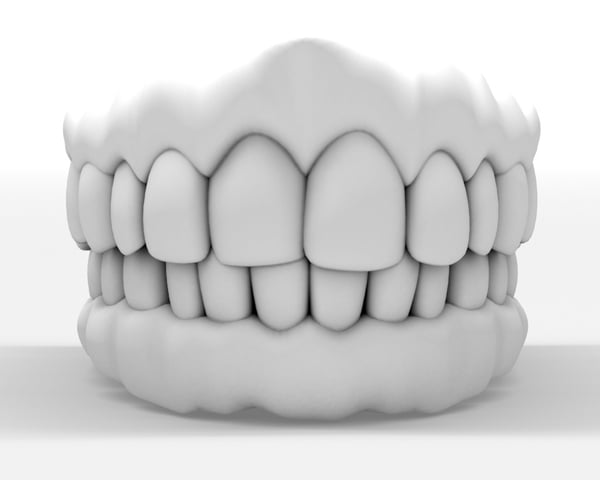
Before a crown is placed, the remaining tooth must be ground down to accommodate it. Usually this means grinding it down (after your dentist has taken an impression if necessary). Some of the healthy tooth will probably be ground away to allow the crown to fit properly.
Need for Enamel
There is a clear need to have an enamel layer of a significant thickness around your teeth even if they are going to be fitted for a crown.
First off when the dentist is considering you as a candidate for a procedure like recontouring to shape your tooth, an x-ray is typically taken of the tooth to see the size and location of the tooth's pulp (the living core of the tooth holding nerves and blood vessels).
The pulp cannot be too close to the surface, the tooth's protective enamel layer must always be thick enough to protect the pulp.
Holes in dental enamel (caries) are hard to repair but the damaged area can be sealed to protect against further damage. The dentist may paint a dental sealant on the chewing surfaces of teeth. Sealants bond into the depressions and grooves of the teeth to form a protective shield, blocking plaque and food particles.
In many cases, a patient needs a crown to protect the chewing activity of the tooth, but the enamel is naturally thinned by decayed holes or acid-enhanced wear.
Then the dentist has to add "filling material, in essence, an artificial replacement of the enamel to build the surface to make it strong enough. There is a number of materials used for filling cavities. For many years, gold or silver amalgams, which are not prone to oxidation and other chemical changes were used.
However, these materials do employ mercury which could have long-term health ramifications. Now, tooth-colored plastics, and "composite resins fillings which may contain glass (glass ionomers) may be used.
Need for Crowns
If you let a damaged tooth remain as is in your mouth, it is likely to become a source of unending dental problems.
Yet, you may not want to remove the tooth because pulling teeth causes place marker problems and increase the likelihood of infection in the space left by missing teeth.
You may need a crown (also sometimes called a cap) if you have a tooth that is so damaged that its appearance has to be corrected or its function has to be restored. If you have had a root canal procedure, have a large filling in a visible tooth, or have broken tooth, a crown may be the way to maintain the tooth as a functioning part of your digestive system.
Crowns are used to protect natural teeth whose root systems are still healthy. The dentist or prosthodontist will file some of the enamel surfaces on your old damaged tooth to make it fit into the crown. The crown is made of the same kinds of materials used to fill cavities.
The dentist will make an impression, like a mold, of the tooth to be crowned, so that the finished hardened crown will exactly fit your tooth which is properly sized for it.
The crown will have just the right color and shape to match the natural teeth in your mouth. The beauty is that your imperfect and possibly damaged tooth will continue to play a productive role in your mouth.
Conclusion
Slight shaving of the tooth enamel is necessary for crowns and various restorative dental techniques. Mouth defects like major tooth deformation, breakage, and major decay can cause the failure of natural teeth--but these can be saved and made useful by crowns, veneers and other repair options.
William Linger, DDS, MAGD has been a trusted, reliable, and popular Charlotte dentist for the past 20 years. The support team that he built inside the office includes the best dental assistants, hygienists, patient comfort specialists, and cheerful front office professionals.
Dr. Linger's hometown dental practice offers expert comprehensive dentistry for the entire family. Dr. Linger also offers skilled professional practice in restorative dentistry and dental implantation. Please contact us to learn more.



